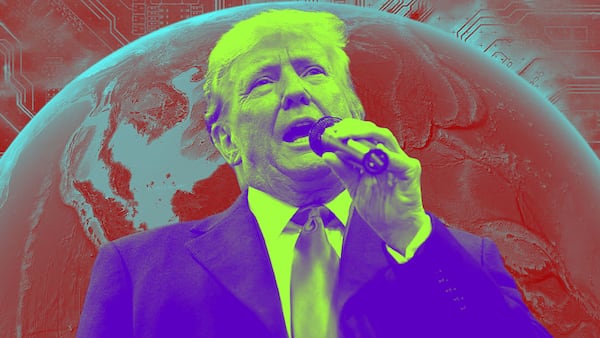- The House passed a bill banning development of CBDCs.
- The bill passed along party lines, with Republicans in favour and Democrats in opposition.
- It highlights the political entrenchment over crypto as the election approaches.
Just as US politicians were finding common ground over crypto, the bipartisan bliss vanished over an old divisive issue — central bank digital currencies.
The rift over CBDCs was on full display on Thursday, when the House of Representatives voted to prohibit the Treasury from creating a digital dollar without explicit authorisation from Congress.
The bill, dubbed the CBDC Anti-Surveillance State Act, was sponsored by Tom Emmer, a Republican from Minnesota and one of the crypto industry’s biggest congressional allies.
“For more than two years, we have worked to educate, grow support, and pass this important legislation, which prevents unelected bureaucrats from issuing a financial surveillance tool to fundamentally undermine our American values,” Emmer said in a statement on X.
The renewed political entrenchment came during a week when crypto watchers had noted a sense of bridge-building on Capitol Hill across two pro-crypto bills.
The CBDC vote seemingly shattered that illusion.
What are CBDCs?
CBDCs are digital currencies issued by central banks.
They are also a hot button issue in the escalating entrenchment over digital money in the US.
The pro-crypto and predominantly Republican crowd, led by freshly minted crypto bro Donald Trump, warn that CBDCs could supercharge government surveillance.
The anti-crypto and mostly Democratic camp, spearheaded by long-term industry sceptic Joe Biden, has instead opted to focus on how CBDCs can make digital transactions faster and cheaper, and come with the government’s imprimatur, unlike cryptocurrencies.
Three countries have already launched CBDCs, according to the Atlantic Council, a think-tank: Nigeria, Jamaica, and the Bahamas. Another 36 countries are currently piloting their own CBDCs.
The US is considering doing the same.
“We are looking carefully, very carefully at the question of whether we should issue a digital dollar,” Federal Reserve Chairman Jerome Powell told the Senate banking committee in 2021.
The vote
House Republicans want to put a stop to that.
On Thursday, 213 Republicans voted in favour of the bill. None voted in opposition.
Only three Democrats crossed party lines to support the bill. Another 192 voted in opposition.
The sharp partisan split was a notable departure from Wednesday’s bipartisan vote on the Financial Innovation and Technology for the 21st Century Act, a bill supported by crypto industry lobbyists.
It also came after the Senate voted to repeal the Securities and Exchange Commission’s controversial SAB 121 accounting policy, which has been criticised for putting unjust pressure on crypto custodians.
Even the partial approval of spot Ethereum exchange-traded funds on Thursday could be interpreted as Washington warming up to crypto.
“It feels like someone at the Biden White House made a call and said ‘Guys, we can’t be the party against crypto anymore,’” Galaxy Digital CEO Mike Novogratz told CNBC earlier in the week.
CCP-style surveillance
Speaking on the House floor Thursday, Republican Patrick McHenry defended the anti-CBDC bill.
“If not open, permissionless and private, a central bank digital currency is no more than a CCP-style surveillance tool waiting to be weaponised,” he said.
“We’ve previously seen examples of governments and governments around the world weaponising the financial system against their own citizens.”
Maxine Waters, a Democrat from California, said banning CBDCs would threaten the dollar’s dominance in international markets, and urged her colleagues to reject the bill.
“Compared to other digital assets, CBDCs have a greater potential to maintain a stable value, garner public trust, and become a viable means of payment transactions,” she said.
“A United States CBDC would be designed to protect consumer privacy and other deeply held American values.”
The bill would need approval from the Senate to become law.
Politico reported that the Democrat-controlled Senate is unlikely to vote on it.
Aleks Gilbert is a DeFi correspondent based in New York. Have a tip? You can reach him at aleks@dlnews.com.







